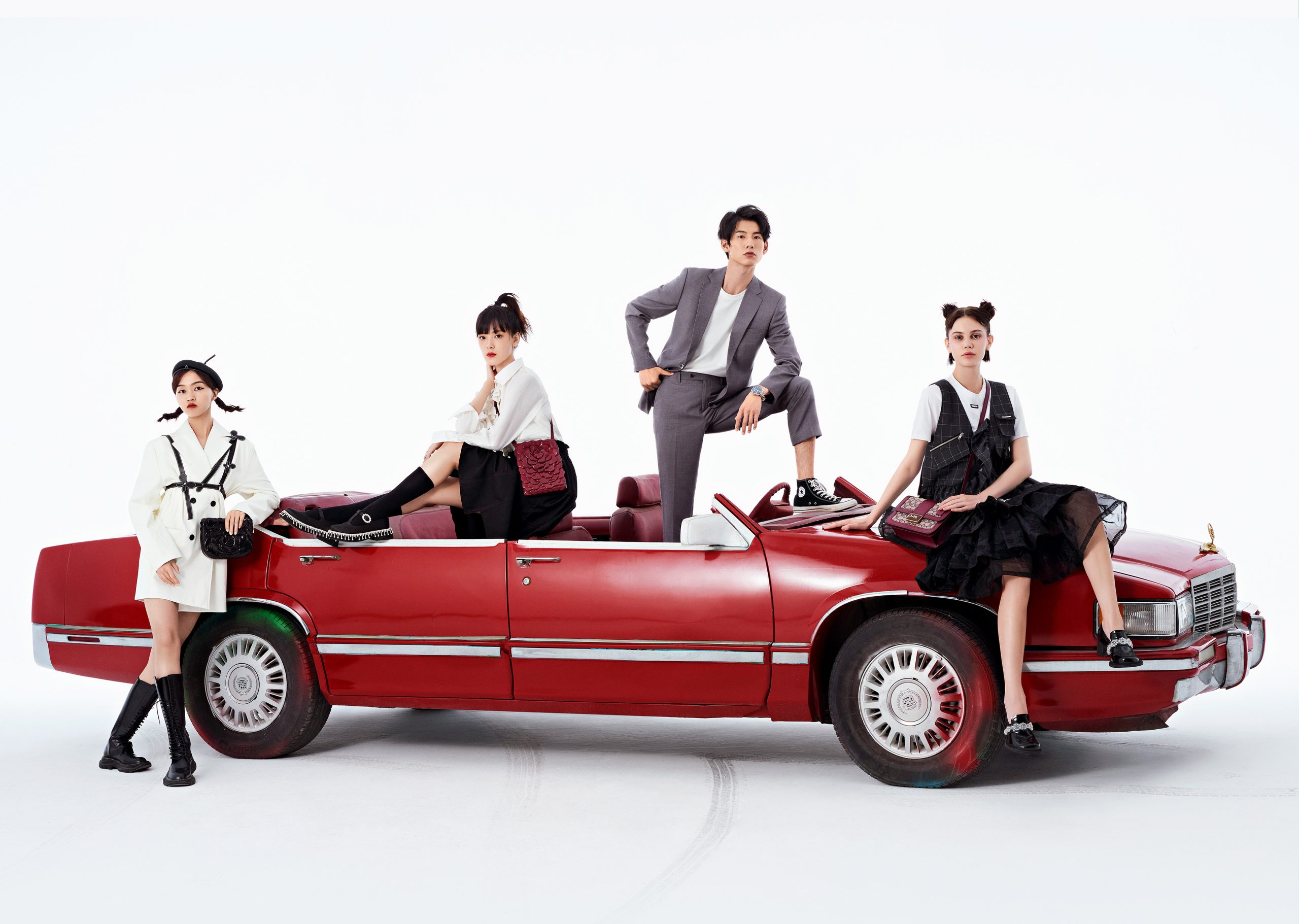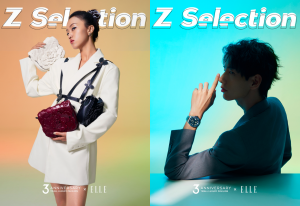
When Alibaba first launched its luxury platform a short three years ago, top-tier brands still viewed e-commerce with caution. How times have changed.
Luxury players had historically been skeptical of the value of moving online and into digital shopping environments, concerned that doing so would lead to a loss of their brand equities and exclusivity. Now, though, the industry is accelerating its shift to digital, with some of the biggest names joining Alibaba Group’s Tmall Luxury Pavilion over the past three years.
The platform boasts nearly 200 leading luxury and designer brands – up from 150 before the Covid-19 outbreak – and expects to exceed 220 by year’s end. Balmain, Salvatore Ferragamo, Golden Goose, De Beers, Jaeger-LeCoultre and IWC Schaffhausen are among the names that have recently joined the platform.
This surge in the Pavilion’s adoption is thanks to its unique, distinctive environment that allows brands to bring the same custom-tailored experience and sense of exclusivity from their brick-and-mortar stores to China’s online shoppers. It has made venturing into e-commerce an easy decision, said Luna Wang, head of Tmall Luxury Division.
“Since the inception of Tmall Luxury Pavilion three years ago, we’ve strived to help brands engage Chinese consumers via our digital tools and solutions, from product marketing and brand-building to market analytics and customer service,” Wang said. “We want to continue working with brands to bring more novel, personalized and social experiences to shoppers – whenever and wherever they are.”
Christina Fontana, who heads luxury and fashion for Tmall in the U.S. and Europe, described the platform as a “buyer’s delight” that’s designed so brands could leverage a rich set of technologies to create the look, feel and experience they want their consumers to have.
“Tmall Luxury Pavilion is really unique worldwide because it is the only place and the only platform I know of where brands have 100% control over everything,” Fontana said. “They pick the price. They pick the merchandising strategy. They pick the communication strategy.”
Still Evolving, Three Years On
To mark its third anniversary, Tmall Luxury Pavilion rolled out a monthlong program of events that included its first shopping festival tailored specifically to China’s young luxury shoppers.
The festival, which ran from Sept. 25 to 27, spotlighted a curated collection of 100 popular luxury products, dubbed the “Z Selection.” The collection included trending items among Millennials and Generation Z consumers on the Pavilion as well as products selected based on the latest market insights from fashion editors, designers and Alibaba’s fashion trend-forecasting unit.
Tmall Luxury Pavilion also partnered with Elle magazine to release a shoppable digital “lookbook,” which featured the Z Selection and emerging fashion trends. The book was designed with young shoppers’ tastes in mind and featured products such as Valentino Garavani‘s Atelier bag, which spoke to consumers’ love for meticulous craftsmanship, and Coach‘s new Alie shoulder bag, chosen to reflect the marked appetite for reinterpreted old classics.
Speaking of the Pavilion’s third anniversary, Dante D’Angelo, chief digital marketing officer at Valentino, said: “We feel we have been part of this journey, too, having at an early stage teamed up with Tmall’s teams in Italy and China to fulfill a clear goal: engage with our Chinese consumers by bringing them the best of the Valentino heritage, experience, products and values.”
“With Tmall, we have been able to expand our conversations in China by listening and understanding the market and embracing the power of technology to move as a pioneer in the digital transformation of the luxury industry,” he added.
To celebrate this milestone, the platform also kicked off co-branded interactive features and content, including eye-catching, shimmering visual effects that flash across users’ smartphones and direct them to brands’ flagship stores. Chloé, Burberry and Marc Jacobs were among the 19 luxury brands that used these activations to engage with their customers.
Luxury Recovery and Regrowth
According to a June report from the Boston Consulting Group, the luxury sector in China has recovered faster than in other markets, with sales of luxury goods expected to rebound and end the year at potentially 10% above the 2019 mark. The report added that Chinese consumers, who normally shop for luxury goods when traveling abroad, are staying home and spending within the country as a result of ongoing global travel restrictions.
To stoke pent-up demand and help brands regain growth during Covid-19, Alibaba mobilized its ecosystem and unveiled a series of initiatives. In April, the company launched Tmall Luxury Pavilion’s sister site, Luxury Soho, aimed at younger, value-conscious luxury shoppers. It was a response to the need in the fashion industry to efficiently manage inventory as brands were sitting on a worldwide abundance of stock amid the pandemic. Luxury Soho allowed brands to move products onto online outlets and bring them in front of a specific audience waiting to discover new products and brands.
The launch of Luxury Soho was followed in June by Alibaba’s annual 6.18 Mid-Year Shopping Festival, China’s biggest sales event since the coronavirus outbreak. More high-end brands participated in the event than ever, and the use of engagement tools such as livestreaming contributed to an uptick in sales.
Connecting with Luxury’s New Generation
Livestreaming is just one of Alibaba’s innovative resources that brands have been using to connect with young, tech-savvy consumers. Last month, Tmall Luxury Pavilion released new tools and interactive features to help brands sharpen their appeal to China’s Generation Z.
That same month, Swiss watchmaker and jeweler Piaget leveraged Alibaba’s Tmall Flagship 2.0 technology to personalize its storefront and promote its special-edition Possession necklace for Chinese Valentine’s Day. Pavilion shoppers were able to access a drag-down pop-up that revealed an interactive version of the product on their phone screens. By rotating the on-screen necklace with their hands, users could unlock a video featuring Chinese actor Liu Haoran and also join the brand’s membership program to win exclusive benefits. By the end of the campaign, Piaget grew its members by nine times on the Pavilion.
Other brands that have used the Flagship 2.0 solution include Michael Kors, which turned to the technology in April, when the coronavirus upended the brand’s plans for a series of live activations. The American fashion label created a digital pop-up experience that introduced its handbag-customization service to Chinese consumers.
Meanwhile, brands like Ermenegildo Zegna have turned to gamified experiences, such as Taobao Life, an immersive virtual world designed to elevate and redefine the online commerce experience of Alibaba’s e-commerce platforms. To promote its crossover collection with Los Angeles-based brand Fear of God in China last month, Ermenegildo Zegna created 3D renditions of its products that consumers could use to dress their Taobao Life avatars. The menswear label also partnered with Alibaba’s paid customer-loyalty program 88VIP to offer its members priority-purchase privileges.
Tmall has also been bringing premium events online as a way to deliver even more unforgettable experiences to shoppers. In March, it teamed up with Shanghai Fashion Week to livestream the full roster of the event’s runway shows, including presentations from brands such as Diane von Furstenberg. Alibaba then partnered with New York Fashion Week to stream all of its September shows to Chinese consumers across its Youku, Taobao and Tmall platforms – helping designers reach an audience of nearly 900 million. This year was also the first time that the Pavilion joined Tmall’s wider push to bring an immersive, round-the-world fashion week experience to China’s style-lovers. The campaign featured content and looks from runway shows across fashion weeks in New York, Paris, London and Milan. For example, Hugo Boss teamed up with popular fashion blogger Ye Si, also known as Gogoboi, for a livestreamed program to ramp up excitement in the run-up to its Milan Fashion Week runway broadcast last month.
And Tmall Luxury Pavilion has helped digitally transform other notable events, including Watches & Wonders, one of the watch industry’s largest trade fairs.
“China’s Gen Z has grown up with the world’s information at its fingertips and entered the world of luxury at a very early age,” said Alibaba’s Luna Wang, who added that these savvy consumers gravitate towards unique, limited-edition products and crossovers while also expecting to interact with brands in a deeper way. “It’s important for brands to understand how to relate to and resonate with these consumers on an emotional level.”
WATCH: Why Tmall is the Ultimate Destination for Luxury Shopping
Sign up for our newsletter to receive the latest Alibaba updates in your inbox every week.






